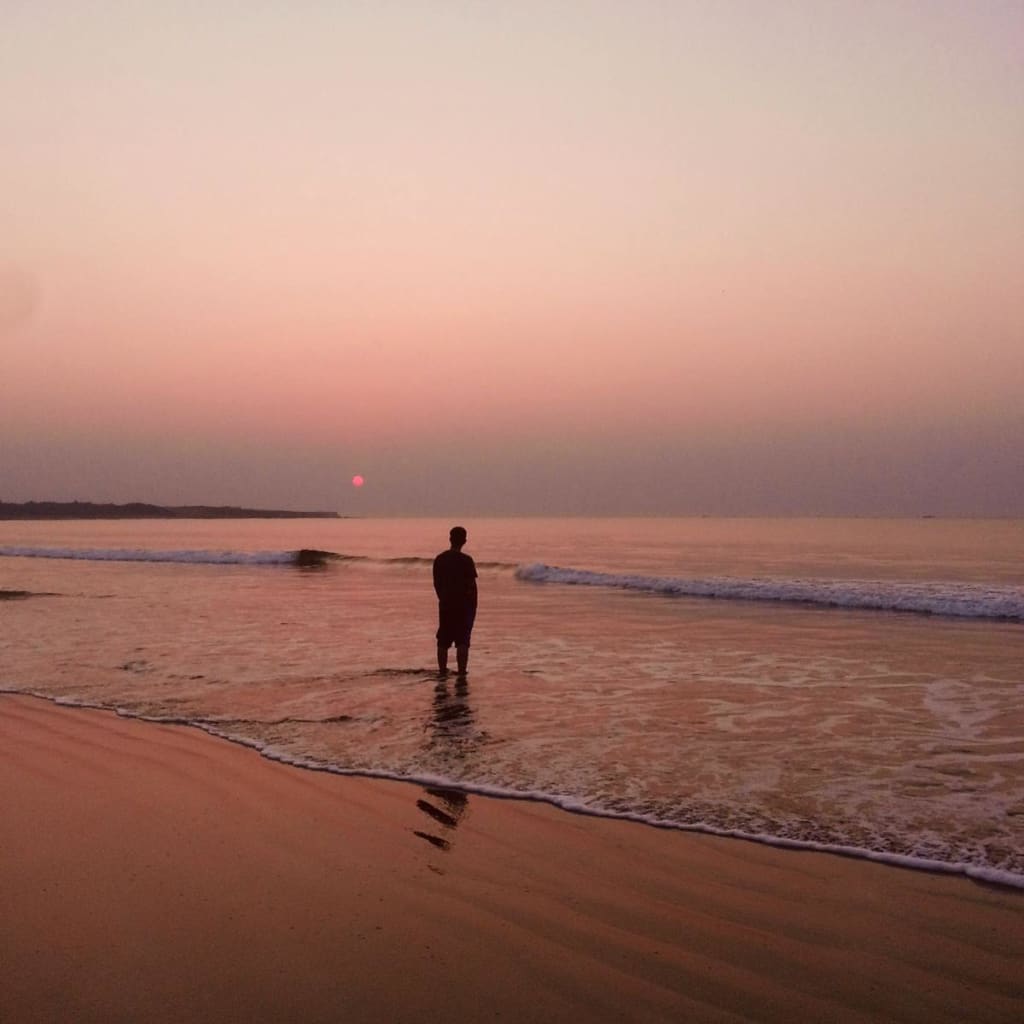The Chronicle of a Particular Human's Lonely Life
Each person occasionally feels lonely. when we relocate to a new place, when we are alone at lunch, or when nobody is available to us on the weekend. But during the past two decades, this sporadic symptom has become chronic for millions of people.

60% of Brits between the ages of 18 and 34 say they experience loneliness frequently. Americans report experiencing loneliness frequently—46% of them. Despite living in the most connected era in human history, a record number of us nevertheless feel alone. Being by yourself and feeling lonely are two distinct concepts. To be happy with yourself, you don't need to like hanging out with other people.
Being lonely is merely a unique, individual experience. If you feel alone, you probably are. One common misperception is that those with poor social skills and unsuitable social behavior are more likely to experience loneliness. Population-based studies have shown that social bonds for adults, however, are mostly unaffected by social skills.
Loneliness has an effect on everyone. Nothing can protect you from loneliness because it is a biological fact, including wealth, celebrity, power, beauty, social skills, and a strong personality.
What does it mean to be alone?
Loneliness is a typical human emotion, much like hunger. Hunger increases your awareness of your physical requirements, whereas loneliness increases your awareness of your social needs. Your body cares about your social needs because, millions of years ago, they were a key indicator of your likelihood of surviving.
Natural selection rewarded our ancestors for collaborating and forging bonds with one another. Our brains evolved and were progressively tuned to build and sustain social connections as well as to understand what others were thinking and feeling. Sociality is now a part of our biology. You were born into families with between 50 and 150 members, most of whom you lived with your entire life.
It was practically hard for me to live on my own while consuming enough calories, being warm, or taking care of kids. We would perish if we were alone; together, we could survive. Therefore, it was crucial to have interpersonal skills. Not being accepted and being left out was the biggest danger to your ancestors' survival—not getting eaten by a lion. That's why your body created "social pain" to stop it. Such pain is an evolutionary reaction to being rejected.
Implement some sort of early warning system to make sure you stop acting in a way that might isolate you. In contrast to those who did not, who were expelled from the tribe and most likely died, your ancestors who felt rejection to be more painful were more likely to change their behavior as a result of rejection, staying in the tribe. Because of this, loneliness hurts considerably more than rejection.
These methods for keeping us connected worked flawlessly for most of our history, but then people started inventing a new world for themselves.
Why Isolation Is Deadly
Numerous studies have shown that stress brought on by prolonged loneliness is one of the worst things a person can experience. The aging process is accelerated by it. Cancer is more fatal as a result. Your immune system is unable to keep up with Alzheimer's disease's progression. We are aware that loneliness is twice as fatal as obesity and is just as bad as smoking a pack of cigarettes every day.
It is particularly lethal because, once it becomes a chronic illness, it can sustain itself. Your brain perceives danger in response to both physical and social pain, so when social pain is inflicted on you, you immediately respond defensively. When loneliness lasts for a long time, your brain enters self-preservation mode. In addition, it starts to notice danger and hostility everywhere.
According to some studies, when you're lonely, your brain both becomes significantly more responsive and alert to social cues while simultaneously being less adept at appropriately understanding them. You pay more attention to people, yet you don't really understand them. Your facial recognition system in your brain drifts out of sync and is more likely to misinterpret neutral faces as hostile, making you suspicious of other people. Loneliness makes you assume the worst about other people's motives for you since it seems like the world is hostile toward you.
You can become more self-centered in an effort to defend yourself, which could make you appear more distant, awkward around people, and chilly than you truly are.
How Do We Proceed?
If loneliness has become a large part of your life, the first thing you can do is try to figure out the vicious cycle you might be engaged in. It usually works like this. Tension and discontent follow an initial feeling of loneliness, which makes you focus on only the negative encounters with other people. You develop more gloomy views of both yourself and other people as a result.
Your tendency to avoid social situations makes you feel more isolated. Each time, this cycle deepens, making it harder to end. When you're lonely, you'll sit apart from your peers in class, decline invitations until they stop arriving, and not pick up the phone when friends call. Every single one of us has a personal narrative that describes who we are. If your narrative is one of exclusion from others, people will pick up on it, and the outside world may begin to reflect on how you feel about it.
Even while you might want connections, they sometimes come slowly and creepily over many years, which might make you depressed. The first step you may take to overcome loneliness is accepting that it is a fully normal emotion and nothing to be ashamed of. Actually, everyone has felt lonely at some point in their life. It is a trait shared by all people. You can acknowledge experiencing something and remove the cause of it, but you can't stop feeling it or ignore it until it magically goes away.
You can examine your attentional tendencies to determine if you primarily pay attention to negative things. Was this exchange with a coworker normal, mutual, or even productive?
The Problems with Modernity
People left their villages and fields to enter factories. As cities grew, communities that had existed for hundreds of years began to vanish. The rapid modernization of our world caused this trend to pick up speed. Today, we leave our social networks behind and travel large distances in quest of new professions, relationships, and education. More rarely than in the past, and with fewer people overall, do we interact with people in person.
Actually, the present loneliness epidemic began in the late Renaissance. The person rose in social standing in Western culture. Intellectuals opposed the collectivism of the Middle Ages, and the emerging Protestant theology placed a strong emphasis on individual responsibility. This tendency intensified during the Industrial Revolution.
The easiest and most convenient thing to give up is time spent with friends. Up until the moment, you suddenly realize how alone you are and how much you long for close relationships. However, it might be difficult to build lasting relationships as an adult, which means that loneliness can persist for a very long period.
Despite the fact that humans feel pretty great about things like iPhones and spaceships, our bodies and minds are fundamentally the same as they were 50,000 years ago. Even now, our biology is ideally suited to our social interactions.
From three in 1985 to two in 2011, the average US citizen had two close pals. Most people unintentionally slip into chronic loneliness. As you age, you become busier with Netflix, jobs, school, dating, and having children. Simply put, not enough time is available.
What really took place in a conversation?
What did the other person say?
"Maybe the other person was just in a hurry and wasn't really reacting badly. Then there are the ways in which you view the outer world. Do you assume the worst when it comes to what people mean to you? Do you predict the outcome of social situations before you ever enter them"?
If you're trying to keep yourself safe and don't want to take a chance by opening up, can you try to give others the benefit of the doubt? Do you believe you can simply assume they are on your side? Are you willing to risk being exposed once more? Lastly, your behavior. Are you avoiding circumstances in which you might be around people? Are you searching for justifications to decline invitations? Or are you intentionally shooing others away to protect yourself?
Do you exhibit any symptoms of being attacked? Do you really want new relationships, or have you become accustomed to the status quo? Of all, each person and situation are unique and different, so reflection alone might not be enough. Please make an effort to ask for and accept assistance if you are unable to deal with your issue on your own. It is not a show of weakness, but rather of courage.
Whether we regard it as a problem that solely affects the individual and needs to be handled in order to bring about happiness or as a public health emergency, loneliness deserves more attention. No matter how amazing the world we have built is, our fundamental biological need for connection cannot be met or satisfied by any of the flashy things we have made.
Most animals get what they need from their immediate surroundings. The artificial human environment we have constructed for ourselves must be based on the support we give to one another.
Let's attempt something together. Let's reach out to someone today, whether you're a little lonely or just want to make someone else's day better. Maybe write a letter to a friend you haven't spoken to in a while, phone a distant family, invite a coworker over for coffee, or just go to something you typically wouldn't dare to do because you're too nervous or too lazy, like a DMD event or a sports club.
Finally, because each person is different, you already know what's best for you. There's a chance that nothing happens, but that's okay. This should not be attempted with any hopes in mind. You can build your connection muscles by merely letting go a little bit. Over time, this will help your connections get stronger. or help someone else use them.
About the Creator
Ahamed Thousif
🌟 Welcome to the realm of exploration, where communities come alive through the power of words! 📚✨ Join me as we embark on a journey to discover the vibrant tapestry of stories and Poems.
VISIT - "MY FOOD BLOG"
Enjoyed the story? Support the Creator.
Subscribe for free to receive all their stories in your feed. You could also pledge your support or give them a one-off tip, letting them know you appreciate their work.






Comments
There are no comments for this story
Be the first to respond and start the conversation.